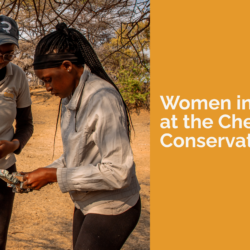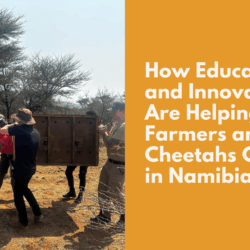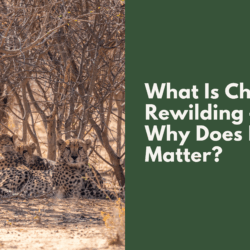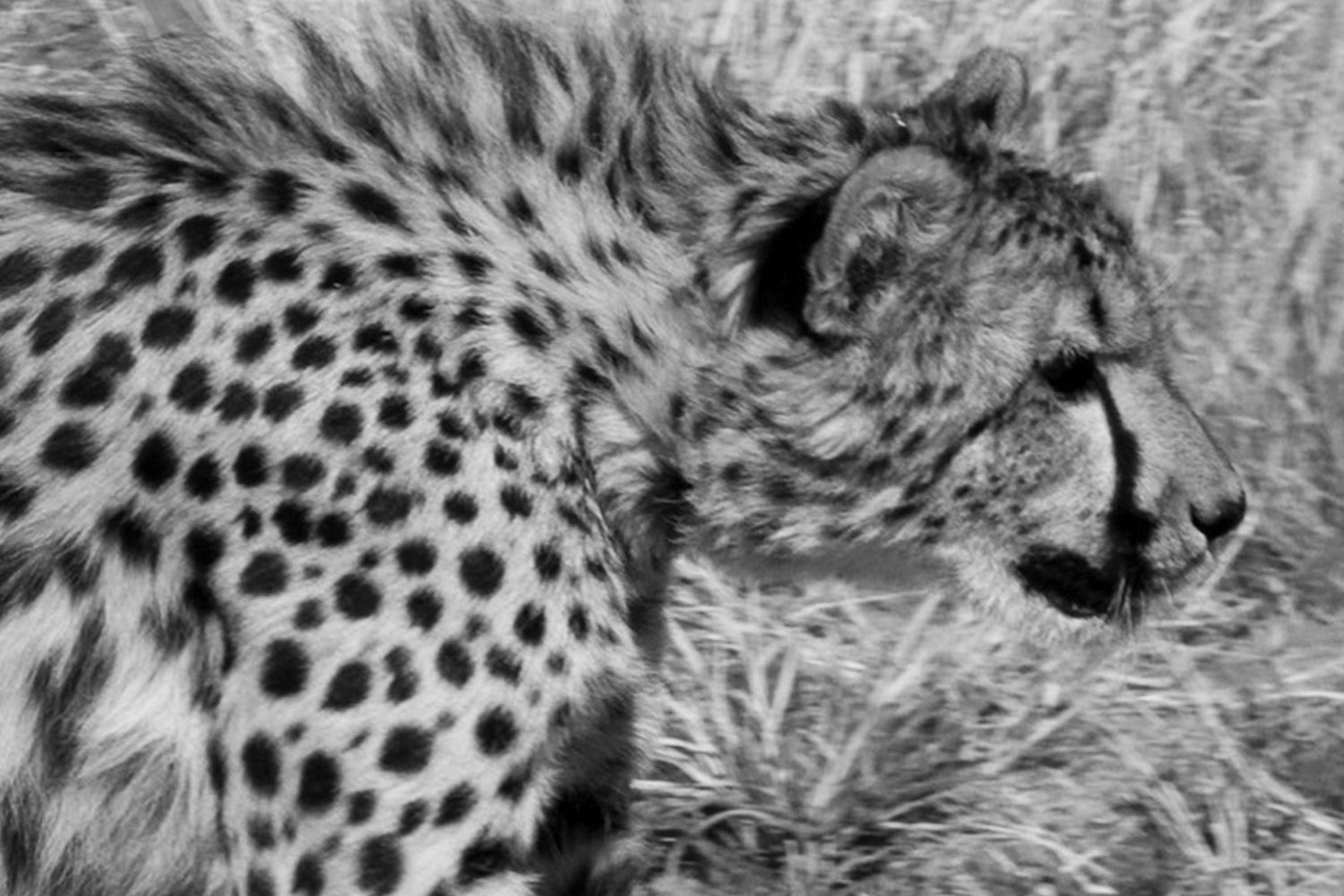Africa Day: Get to know CCF’s impactful conservation efforts across Africa
-

- by Zila Oliveira 23 May 2024
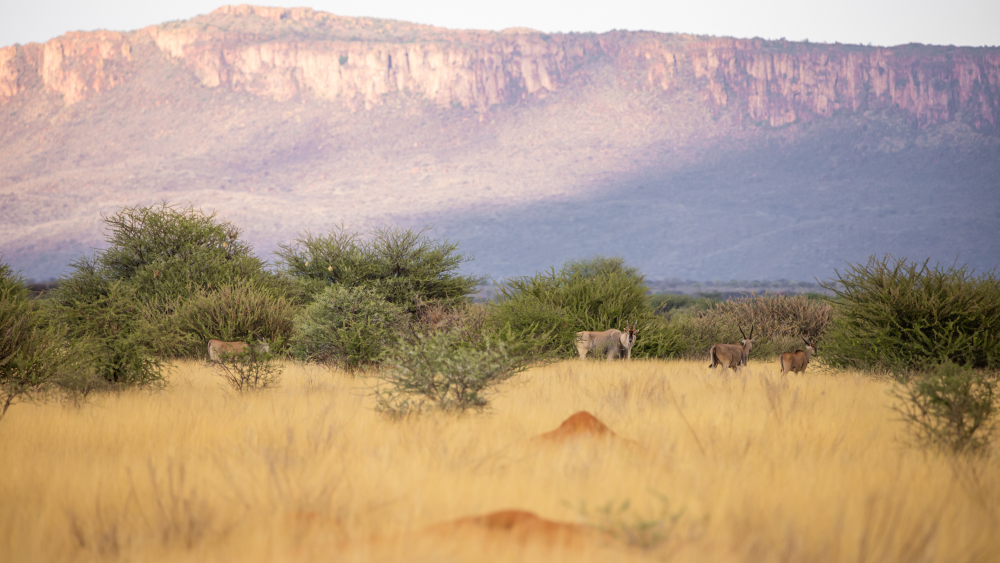
As Africa Day dawns, illuminating the continent’s rich tapestry of cultures, landscapes, and wildlife, we embark on a journey to uncover the profound conservation endeavours of the Cheetah Conservation Fund (CCF) across Africa. In alignment with this ethos, CCF convenes to share and celebrate its initiatives aimed at safeguarding the cheetah population and preserving our shared planet, particularly in the Horn of Africa.
Through innovative strategies, community partnerships, and scientific research, CCF exemplifies a steadfast commitment to conservation, nurturing a future where Africa’s natural heritage thrives alongside its human inhabitants. Keep reading to discover more about our initiatives.
How can CCF projects help in the Africa environment conservation?
CCF’s projects play a pivotal role in environmental conservation, extending beyond the preservation of cheetahs to encompass broader initiatives crucial for human well-being. Africa’s remarkable biodiversity faces escalating threats, with ongoing losses of species and habitat. According to research by IPBES, Africa hosts nine of the world’s 36 biodiversity hotspots, regions characterised by significant endemic plant species and substantial losses of native vegetation.
Moreover, approximately 20% of Africa’s land surface, spanning 6.6 million km2, suffers from degradation due to soil erosion, salinisation, pollution, and loss of vegetation or soil fertility. This environmental degradation poses risks not only to cheetahs but also to humans and future generations. Thus, combating habitat loss emerges as a critical imperative for the collective well-being of all stakeholders.
Restoring habitat
Restoration of habitats stands as a cornerstone in CCF’s conservation efforts. By partnering with local landowners to implement wildlife-friendly land management practices, CCF strives to reclaim degraded habitats.
In Namibia, where 12-14% of bushland is infested with undesirable species, CCF’s innovative approach involves the removal of thorn bushes to produce Bushblok— a marketable product that supports local livelihoods while benefiting wildlife and ecosystems. This endeavour expands habitat availability for cheetahs, enhancing their well-being alongside that of other wildlife and local communities.
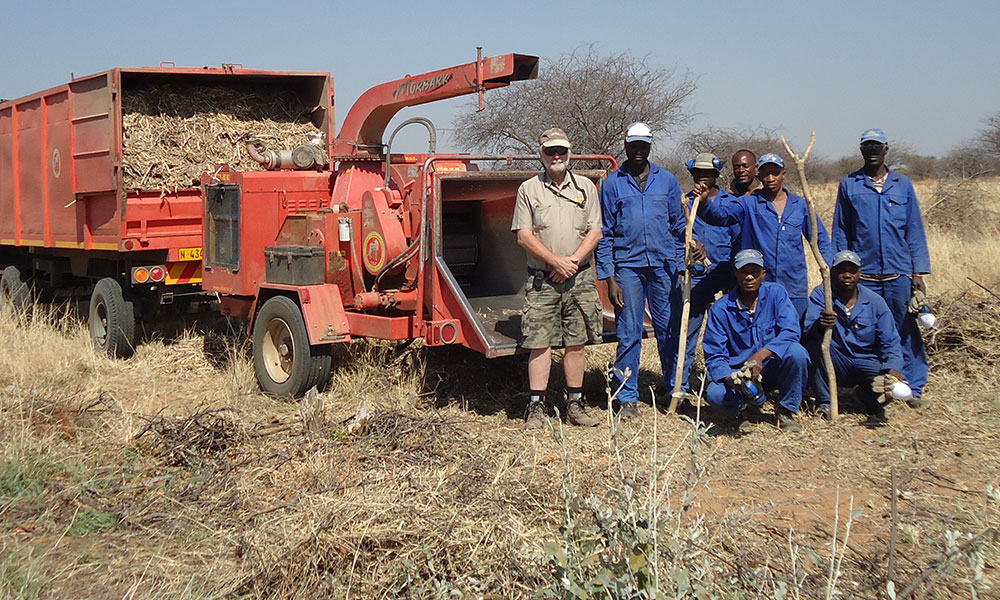
CCF Reserve in Namibia
In our commitment to conservation efforts across Africa, we diligently maintain our reserve while actively monitoring the diverse array of wildlife that calls it home. CCF’s Reserve encompasses a vast natural enclosure, enclosed by a sturdy livestock fence designed to facilitate wildlife movement while effectively keeping livestock, primarily cattle, at bay.
Within this expansive area, a thriving ecosystem flourishes, hosting a rich variety of species, including warthogs, leopards, greater kudu, brown hyaenas, and gemsbok oryx.
As part of CCF’s ongoing ecological research, we meticulously track the overall health and demographics of these species inhabiting our land. Employing camera trap surveys proves invaluable, particularly in capturing elusive species such as leopards and brown hyaenas. Below, you’ll find recent images showcasing the vibrant life within CCF’s reserve.
Conservancy projects
CCF is dedicated to developing conservation programmes across various regions of Africa. In 2024, our focus is on conservancy efforts in Somaliland. In March 2024, we convened a governance meeting to establish a community-centred conservancy in a few regions of Somaliland.
This pivotal meeting paved the way for a series of four workshops attended by key stakeholders, including the Minister of Environment and Climate Change (MoECC), Regional Governors, District Mayors, and Village Development Committees. The primary objective was to engage over 50 villages in the assessment of conservancy areas, fostering active participation from local communities in conservation endeavours.
A comprehensive strategy to preserve the biodiversity of these two sites was devised, in line with the principle of community-centred conservancy. This inclusive approach empowers residents to assume a significant role in managing and safeguarding their environment under the guidance of the MoECC. Moving forward, CCF is committed to advancing this project, contributing not only to environmental preservation but also to the prosperity of local communities.
Future farmers of Africa
Additionally, CCF’s Future Farmers of Africa programme underscores the integration of conservation and sustainable livelihoods. By equipping farmers with predator-friendly livestock and wildlife management techniques, CCF mitigates human-wildlife conflict while promoting coexistence between farmers and wildlife. This holistic approach not only safeguards wild cheetahs but also fosters sustainable agricultural practices beneficial to both humans and wildlife.
Through our programme we can:
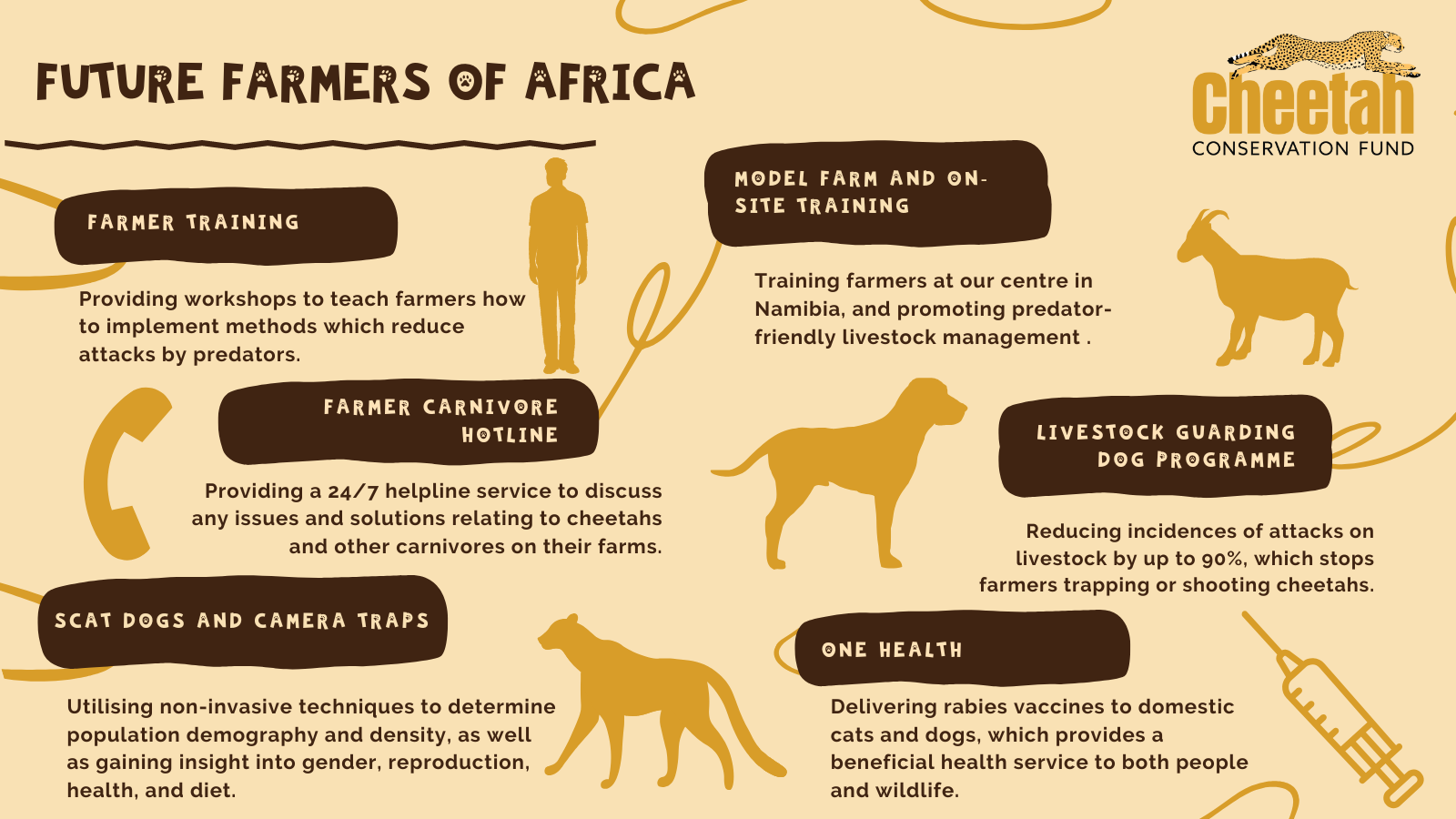
Together, we take care of our earth
World Earth Day serves as a poignant reminder of our shared responsibility to protect our planet and its inhabitants. Through collaborative efforts exemplified by CCF’s initiatives, we can forge a sustainable future where humans and wildlife thrive in harmony. As we commemorate World Earth Day, let us reaffirm our commitment to environmental stewardship, recognising that by safeguarding nature, we safeguard our collective future.
Together, we have the ability to make a positive impact and ensure a sustainable future for generations to come. By supporting organisations like CCF and actively participating in conservation efforts, we can preserve the rich tapestry of life on our planet. Let us unite in our shared mission to care for our Earth and all its inhabitants.
If you want help us, you can make a donation now.
Related Reading
-
10 February 2026
Women Shaping the Future of Science at the Cheetah Conservation Fund







